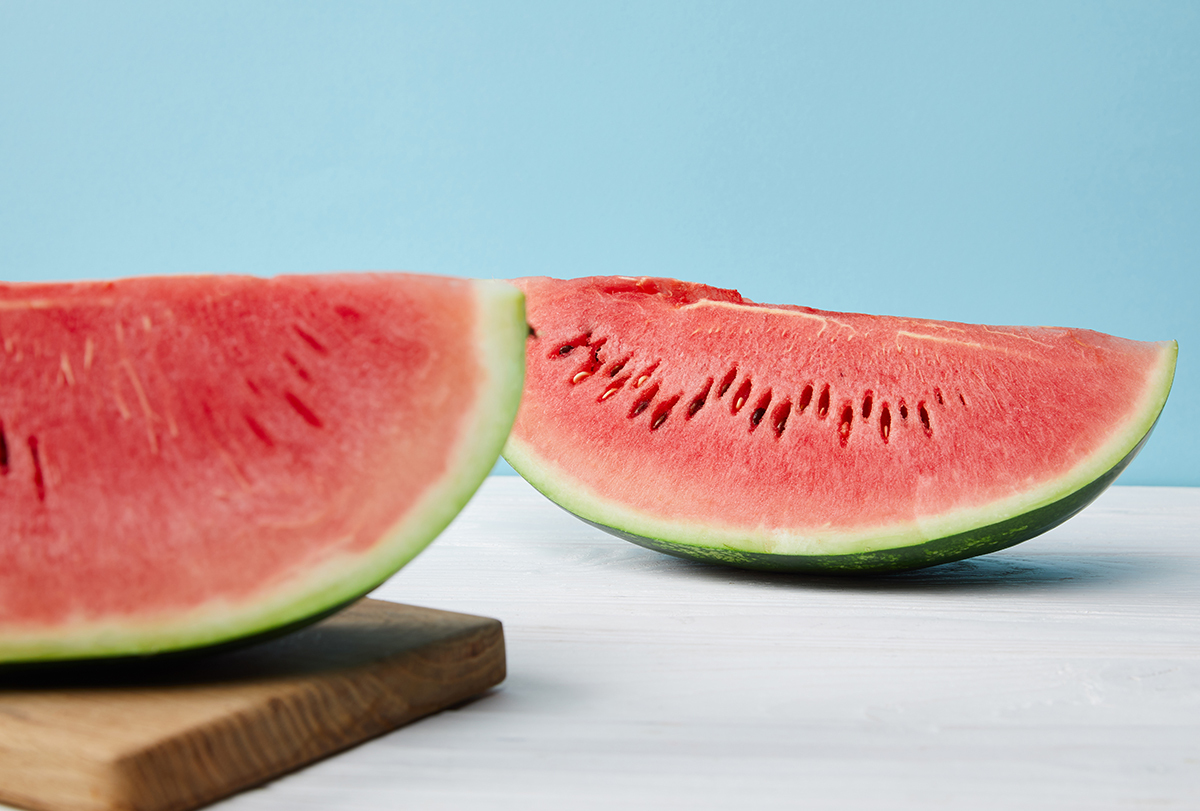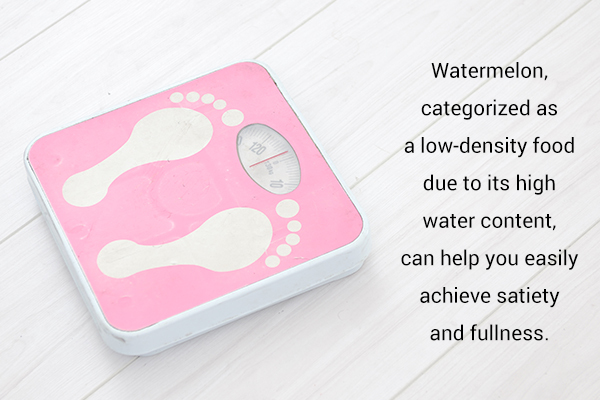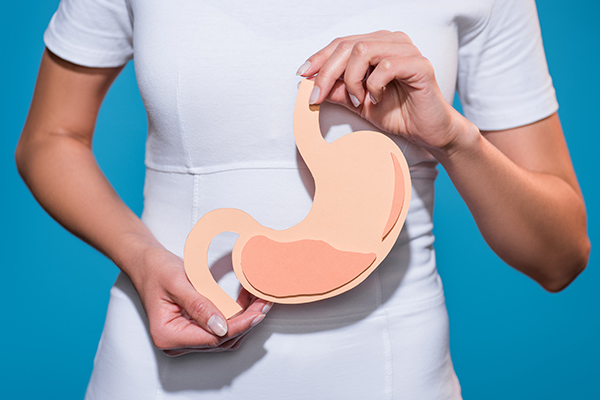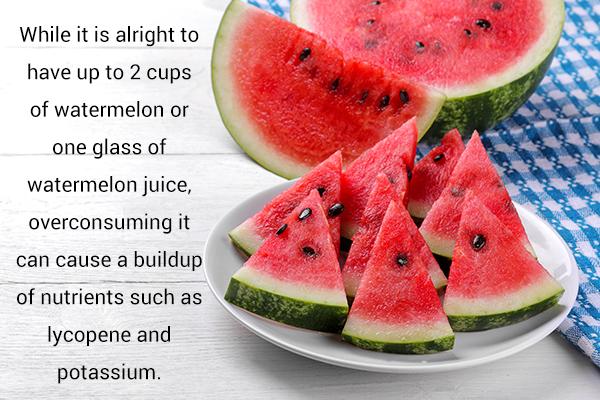In this article:
Watermelon is a versatile, delicious, and easy-to-consume fruit. Comprising 92% water, it is a refreshing fruit fit for consumption during the hot summer months. Its nutritive value and delicious crispy texture make it a favorite of many.

Watermelon is grown on sprawling vines in tropical to temperate regions. It is native to tropical Africa but is now cultivated worldwide.
It is usually eaten raw and added to salads, smoothies, snacks, and even drinks, but some people also eat the rind along with its seeds by cooking it down with spices.
Health Benefits of Consuming Watermelon
Watermelon is an abundant source of many useful nutrients including lycopene, vitamin C, vitamin A, and beta carotene, (1) and it offers several health benefits.
1. Helps in hydration
About 100 g or 1 cup of watermelon provides 91.4 g of water; (1) thus, consuming it is a very effective way to increase your daily water consumption. Moreover, due to its high water density, watermelon is a low-calorie fruit that is useful in maintaining weight.
It is important to note that people suffering from kidney diseases and those who need to keep their water intake under check must consult their doctor before including a high-water-content fruit in their diet.
2. Aids in weight maintenance

According to one study, weight reduction can be achieved by consuming foods that are classified as low density. They are typically those foods that have a low calorie and high water content. (2)
Watermelon, categorized as a low-density food due to its high water content, can help you easily achieve satiety and fullness. This, in turn, reduces your chance of overeating, consequently helping in overall weight reduction.
3. Controls blood sugar
Watermelon is rich in lycopene, a phenolic compound that imparts the fruit its distinct red color and has been shown to reduce (3) free glucose in the blood. This effect is particularly beneficial for people with diabetes as it will help in blood sugar management.
However, it is important not to eat more than 1–2 servings of the fruit as it has high sugar content.
Watermelon also contains vitamin C, which reduces free radical damage that commonly occurs in diabetics.
4. Prevents cardiovascular diseases
A crossover design study found that watermelon consumption significantly reduced lipid markers (including cholesterol, triglycerides, and LDL cholesterol). (4)
Additionally, citrulline, an amino acid in watermelon, may also reduce (5) the buildup of fatty plaque in blood vessels called atherosclerosis. Atherosclerotic plaques along the sides of blood vessels can cause narrowing of the arteries, leading to diseases such as stroke and myocardial infarction (heart attack).
5. Reduces the severity of asthma
Studies show that asthma is caused by the presence of free radicals in the body. (6) Several review studies found that consuming lycopene-rich foods, such as watermelon, reduced oxidative stress. It also helped reduce symptoms of asthma including airway smooth muscle contraction and mucus hypersecretion. (7)
6. Preserves dental health

Watermelon’s vitamin C content can help prevent the development of gingivitis, (8) a serious dental disease.
Vitamin C has also been closely linked to periodontal disease, where a study has shown that this vitamin reduces the inflammation and bleeding that occurs in the condition.
7. Fights inflammation
The antioxidants present in watermelon, including beta carotene, vitamin C, and vitamin A, generally have an anti-inflammatory effect on the body.
In one study, watermelon reduced the cholesterol and triglyceride levels as well as oxidative stress in rats. (9) These effects consequently reduced inflammation.
8. Protects nerve function
Watermelon contains magnesium and potassium, which are natural electrolytes. Potassium controls how well nerves function in the body and improves their conduction activity (10)
In one study, dietary potassium was suggested to play a protective function for the nerves. (11)
9. Aids in digestion

Watermelon is abundantly rich in water and contains some fiber, much like most other fruits. Fiber provides bulk to the stool and water helps with its easy movement along the digestive tract.
A recent review also showed the potential of fiber to change the gut microflora (microorganisms present in the gut) to positively impact metabolism. (12)
Furthermore, in a study done on diabetic mice, consumption of watermelon juice showed a significant reduction in fasting blood glucose levels in both type 1 and type 2 diabetes. It also induced changes in the gut microflora. (13)
10. Improves athletic performance
Citrulline, an amino acid in watermelon, is effective in reducing muscle soreness. (14) The water content helps in hydrating the muscles and washing away the accumulated lactic acid formed in the muscle post-exercise.
Nutritional Content of Watermelon
One cup (145 g) of watermelon gives about 140 g of water. It has 43.12 mcg of vitamin A, contributing 5% of the daily value, along with 466.62 mcg of beta carotene.
The lycopene content sits at around 6,979.28 mcg. It also has 11/63 g of carbohydrate with 0.62 g of fiber. The magnesium content in watermelon is 15.40 mcg and potassium is 172.48, both minerals contributing 4% of the daily value.
With only 0.94 g of protein, watermelon has a weak amino acid profile. (15)
How to Include in Your Diet
Watermelon’s versatility allows it to be used in various innovative recipes enjoyed by many irrespective of age.
Many people choose to prepare a watermelon and feta salad, a popular summer dish that has a good fiber and protein combination. This salad is perfect as a side dish for your summer lunches or as a midday snack.
Watermelon can also be used in smoothies, drinks, juices, appetizers, or snacks.
Precautions to Consider

When consuming watermelon, keep these things in mind:
- While it is alright to have up to 2 cups of watermelon or one glass of watermelon juice, overconsuming it can cause a buildup of nutrients such as lycopene and potassium. A large quantity of potassium can disrupt your electrolyte balance and kidney function. A large amount of fiber obtained from overeating watermelon can also cause digestive distress such as bloating, diarrhea, and nausea.
- Ayurveda (traditional Indian medicine) highly recommends not drinking water for at least 30 minutes after consuming watermelon. While there isn’t any scientific evidence to back this claim, it is better to avoid having water after its consumption as some people report developing a sore throat or cold.
- When you consume large quantities of watermelon, bacteria that are present in the gut will ferment the excessive amount of sugar, leading to discomfort and indigestion. Furthermore, the fruit’s beneficial effect on blood sugar will be negated, causing a spike in blood glucose and insulin levels instead.
Most-Asked Questions About Watermelon
When should I avoid consuming watermelon?
Avoid eating watermelon late in the evening or at night just before sleeping. The high water content will make you visit the bathroom more frequently through the night, and the high sugar content doesn’t make for a good snack at bedtime.
Can I eat watermelon if I have diabetes?
It is absolutely okay to have up to 2 cups of watermelon a day if you have well-controlled blood sugar levels. People who have unregulated blood sugar levels and those with allergies should avoid eating this fruit.
Final Word
Fruits in general are great sources of vitamins and minerals that are best obtained when consumed fresh.
Watermelon, a treasure trove of vitamins and minerals, offers a host of benefits – from providing sufficient hydration to aiding in weight loss, reducing free glucose in the blood, improving nerve function and dental hygiene, and soothing muscle soreness.
As with everything, overconsumption of watermelon can negate its benefits and may cause harm instead. Also, avoid having any liquids when consuming the fresh fruit.
A good rule of thumb is to combine watermelon along with nuts or proteins. Doing so creates useful nutrient combinations that are both satiating and beneficial.
- Was this article helpful?
- YES, THANKS!NOT REALLY


